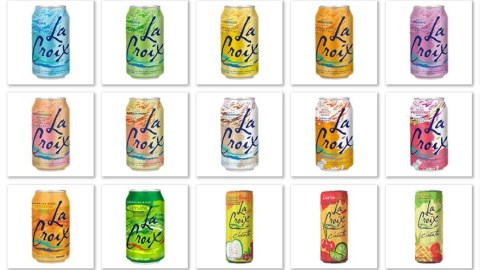LaCroix contains ingredient ‘used in cockroach insecticide,’ lawsuit alleges

Image: LaCroix.com
- The lawsuit claims LaCroix’s parent company is “intentionally misleading consumers” by claiming its drink is all natural.
- The lawsuit lists three “synthetic” chemicals used to make LaCroix, all of which the FDA classifies, in some way, as synthetic.
- However, these chemicals are all naturally occurring and there’s no research that suggests they’re harmful to humans in small amounts.
A new lawsuit against the maker of LaCroix alleges that the “100% natural” drink actually contains artificial ingredients, including one used in cockroach insecticide.
“Testing reveals that LaCroix contains a number of artificial ingredients, including linalool, which is used in cockroach insecticide,” claims a statement from Beaumont Costales, a law firm representing plaintiff Lenora Rice.
The lawsuit states that Natural Beverage Corp., LaCroix’s parent company, is “intentionally misleading consumers” and that Rice was “led to purchase LaCroix sparkling water because of the claims made on its packaging, advertising and website to be ‘innocent,’ ‘naturally essenced,’ ‘all natural,’ and ‘always 100% natural.'”
But LaCroix actually contains synthetic ingredients, the lawsuit argues. “These chemicals include limonene, which can cause kidney toxicity and tumors; linalool propionate, which is used to treat cancer; and linalool, which is used in cockroach insecticide.”
Natural Beverage “categorically denies all allegations,” which it said were filed “without basis in fact or law.” The company plans to “vigorously seek actual and punitive damages among other remedies from everyone involved in the publication of these defamatory falsehoods.”
What’s in LaCroix, anyway?
The LaCroix website says all its “natural flavors are essences or oils derived from the named fruit, i.e., lime/lime oils. There is nothing artificial in LaCroix — enjoy!” Still, few people can define what really constitutes an “essence.”
That’s partly because the Food and Drug Administration doesn’t require companies to define the term, but allows them to use it to describe “flavoring constituents derived from a spice, fruit or fruit juice, vegetable or vegetable juice, edible yeast, herb, bark, bud, root, leaf or similar plant material, meat, seafood, poultry, eggs, dairy products, or fermentation products thereof.”
According to a 2017 story about LaCroix from Wall Street Journal reporter Rob Copeland, “Essence is, essentially, the mystery behind” the billion-dollar brand.” A spokesperson for LaCroix told Copeland that “Essence is our picture word… Essence is — FEELINGS and Sensory Effects!”
Copeland conjured a more informative definition. “Essence is created by heating at high temperatures the skin, rinds or broken down remnants of fruits or vegetables,” he wrote. “Alcohol is sometimes added to the mixture. The vapors that rise off the stew are captured, condensed and eventually sold by the 55-gallon barrel.”
So, what about linalool and the other two supposedly artificial and dangerous chemicals found in America’s favorite seltzer?
It’s true that linalool is used in cockroach insecticide, but the chemical can also be found in dozens of spices recognized as safe by the FDA. The agency classifies both limonene and linalool as “synthetic flavoring substances” that are “generally recognized as safe for their intended use,” and lists linalyl proprionate under “synthetic flavoring substances and adjuvants” that are safe, according to certain conditions.
It’s also worth noting that there are varying definitions of the word “synthetic,” and all three of these chemicals are naturally occurring substances that are added to LaCroix in relatively miniscule amounts, and, as such, likely aren’t harmful to humans.
“It is very unlikely these naturally-occurring substances pose a health risk when consumed at levels usually found in foods,” Roger Clemens, an expert in food and regulatory science at the University of Southern California, told Popular Science. “If there were a health risk, then citrus juices and spices, such as curry, would not be consumed or be part of the commodity market.”
Although sparkling water is known to be less than ideal for dental health, it’s unlikely that products like LaCroix pose any real danger to humans. If anything, the (questionably) “all-natural” drink has probably helped many people become healthier as they transition from sugar-heavy soda to sparkling water. But for others, it’s all about the taste.
“I know what flavors I like but I have no idea what kinds of chemicals are in there and I don’t care,” one LaCroix fan told Copeland. “I know it tastes good.”





